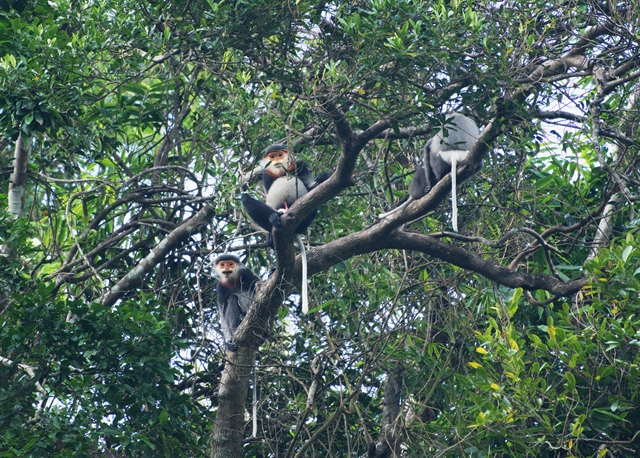 Environment
Environment

Kiều Trinh
From a distance, they look just like any other group of kittens, play fighting among themselves without a care in the world.
But closer inspection reveals these are not your average, run-of-the-mill baby cats.
They are seven, two-month old tiger cubs, rescued from the clutches of poachers who tried to illegally traffic them into Việt Nam.
Tiger trafficking is a lucrative business. In the past week alone, 24 tigers have been recovered by the authorities in Việt Nam. Sadly eight didn’t make it.
The population of the world’s largest cat has declined by 93 per cent in the last century and it is estimated that only less than 4,000 remain in the wild, making the tiger one of the world’s most endangered species.
Poaching is blamed as the main reason for the fall in numbers.
Thankfully for these seven cubs, the authorities in Việt Nam managed to rescue them from an uncertain future, but only after a high-speed car chase that ended when the suspect’s vehicle crashed into a police car in the early hours of August 1 in Nghệ An Province.
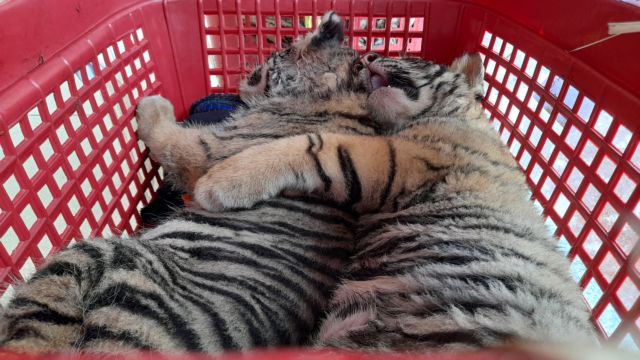
|
| The tiger cubs are illegally transported in small plastic cages. — Photo courtesy of Save Vietnam’s Wildlife |
“After receiving information from Nghệ An Environment Police about seven baby tigers seized from illegal transportation, we immediately went to the police station to collect them,” Lưu Trung Kiên, Deputy Director of Pù Mát National Park, told Việt Nam News.
“When we arrived, the cubs were in a bad condition, because they hadn’t been fed for a long time. The cubs were really young, so we prepared milk to feed them right there at the police station. We waited for them to get better and took them to Pù Mát National Park.”
Although their origin for now is still unknown, with investigations still taking place, the cubs are suspected to have been smuggled into the country from Laos.
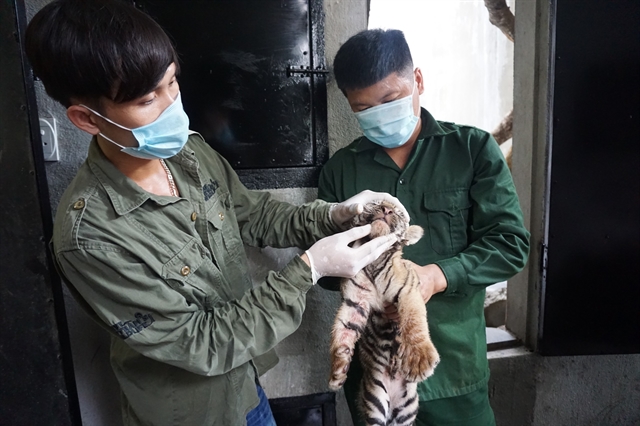
|
| Checking and testing a cub for illnesses. — Photo courtesy of Save Vietnam’s Wildlife |
A spokesman for the Public Security Office of Nghệ An Police, said: “Most of these tiger cubs are smuggled from illegal tiger farms.
“They are sold to different places for illegal breeding. As in most cases of illegal wildlife trafficking from Hà Tĩnh to Nghệ An and to the North, it is more than likely that these tigers had come across the border from Laos.”
Now the baby tigers are being nursed back to health by the organisation Save Vietnam’s Wildlife. And that doesn’t come cheap.
Director Nguyễn Văn Thái said food alone for these hungry cubs can cost in the region of VNĐ100 million each month.
“The bigger the tigers are, the more it costs,” said Thái.
“Taking care of tiger cubs is like taking care of children. Milk must be given every four hours, and we have to give them plenty of time to exercise to ensure they develop both their bones and muscles and supplement nutrients such as calcium.”
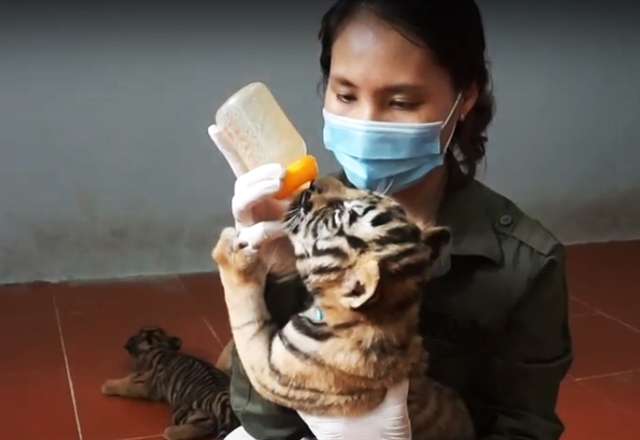
|
| The cubs are fed every four hours. — Photo courtesy of Save Vietnam’s Wildlife |
Safe for now, the next step of the journey for the rescued cubs is challenging. Their current habitat at the rescue centre is only a stop-gap solution.
Thái added: “There is nowhere in the world where tigers are born and raised in captivity and then released into the wild because in captivity, they lose many of their wild, predatory instincts.
“In addition, because tigers have been cared for by humans, they are familiar with humans. If released back into the wild, they may approach villages around the forest, posing a danger to local people.
“Therefore, finding a long-term solution, both to care for those tigers, and for educational purposes, or to build controlled, semi-wild areas to care for and restore the natural behaviour of these creatures and making long-term programmes later is one of the major challenges.”
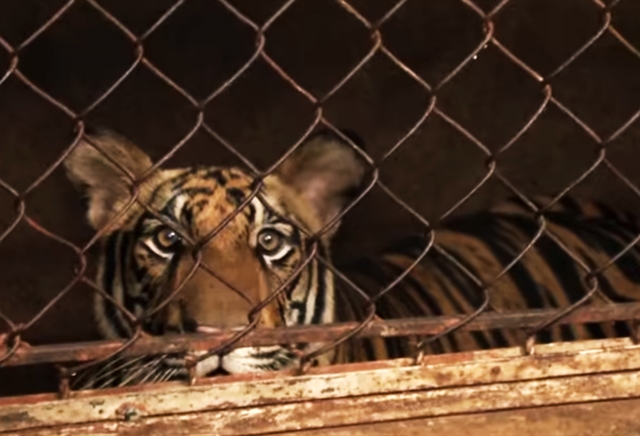
|
| A number of illegally raised tigers were rescued on August 4. — Photo courtesy of Nghệ An Province Police |
In another development, on August 4, the Economic Police Division and the Environmental Police Department, in collaboration with the Yên Thành District Police, raided two illegal tiger breeding facilities in the Đô Thành Commune, Yên Thành District in Nghệ An Province.
Police seized 17 live adult tigers, some weighing more than 200kg. They were transported to the Mường Thanh Ecological Area in Diễn Châu District while further investigations are carried out.
Eight of the big cats have since died.
According to the WWF, there are only about five tigers left in the wild in Việt Nam. Their decline leads to ecological disruption.
Thái said: “This illegal trade has led to the loss of natural tiger populations in Việt Nam and many Southeast Asian countries, leading to an ecological imbalance, because tigers control the populations of many other mammals in nature.
“They are an important part of the food chain. Losing tigers in the wild will disrupt the ecological balance, affecting biodiversity.” — VNS
Tiger facts
|




